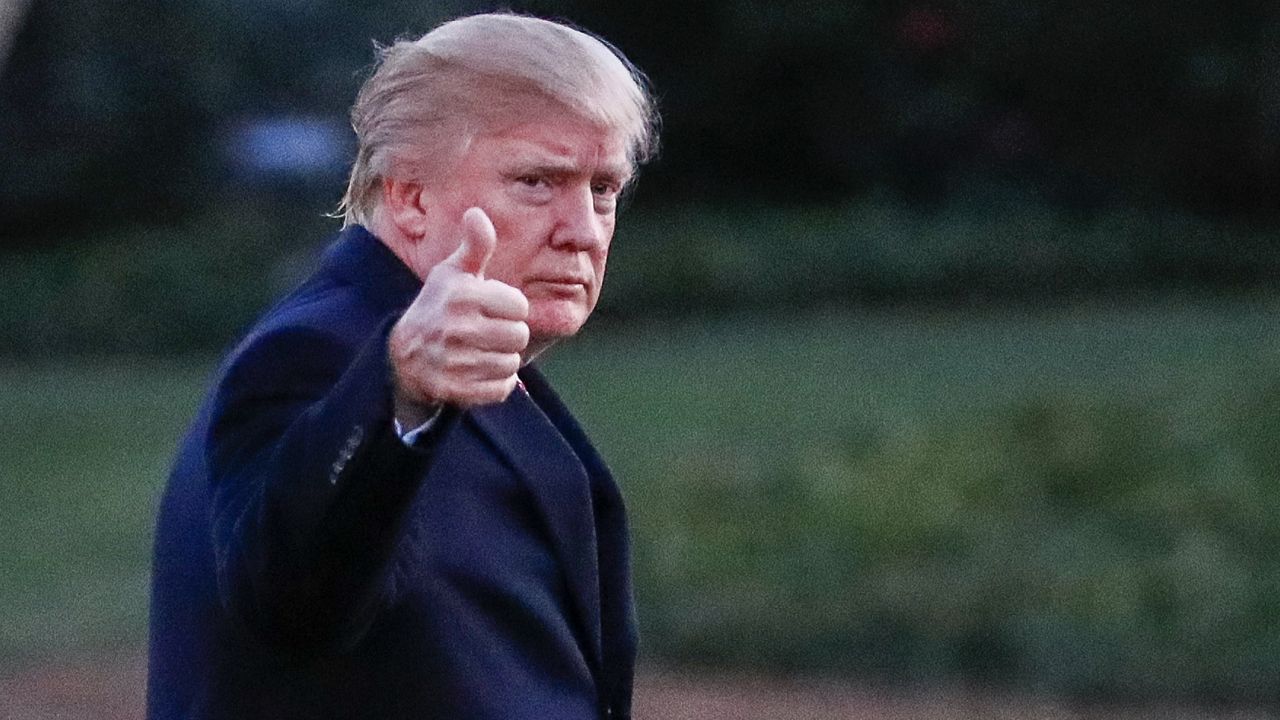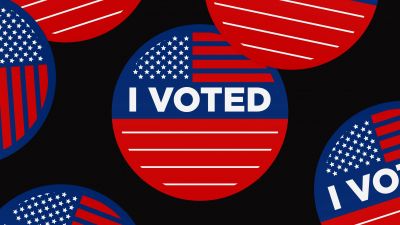
President Trump as he walks across the South Lawn toward the White House on March 5, 2017, returning from a weekend at Mar-a-Lago. (Photo by Erik S. Lesser-Pool/Getty Images)
We produce this news digest every weekday. You can to receive these updates as an email newsletter each morning.
Breaking –> From Adam Liptak at The New York Times: “The Supreme Court announced on Monday that it would not hear a major case on transgender rights after all, acting after the Trump administration changed the federal government’s position on whether public schools had to allow transgender youths to use bathrooms that matched their gender identities.”
They’re calling it “Towergate” –> Donald Trump tweeted on Saturday that Barack Obama, while still president, tapped Trump’s phones at Manhattan’s Trump Tower, an accusation that seemed to have originated as a rant by right wing talk radio host Mark Levin and then was amplified by Breitbart News. On Sunday, Trump doubled down, demanding, also via Twitter, that Congress investigate these alleged wiretaps. It still remains unclear exactly what Trump is talking about — “perhaps Trump never read the Breitbart article but instead learned there was significant surveillance of Trump Tower in the way you’d expect a president would, from the massive intelligence apparatus he commands,” Jon Schwarz writes for The Intercept. “Or perhaps Trump has simply gotten all of this wrong.”
A wiretap would have required Obama-era intelligence or law enforcement officials to obtain a warrant from the Foreign Intelligence Surveillance Court. “The process of obtaining permission to conduct a wiretap on an American in a foreign intelligence investigation is an arduous one,” Karen Tumulty reports for The Washington Post. “If it turns out that a government agency put one on Trump or individuals around him, an obvious question would be what evidence was used to justify the action.”
Julian Sanchez writes at the blog JustSecurity, “As one would hope Trump is aware, presidents are not supposed to personally order electronic surveillance of particular domestic targets.” Instead, it looks like the FBI may have sought permission from the FISA court to surveil communications between individuals connected to Trump and a Russian bank. To do that, officials would have had to present evidence that they had good reason to be suspicious something illegal was being done.
On Sunday, FBI Director James Comey rejected Trump’s Twitter statements, and asked the Department of Justice to do the same. But now that Attorney General Jeff Sessions has recused himself from anything related to Trump and Russia, it’s unclear from whom that statement would come.
And then there’s this –> “Russian hackers are targeting US progressive groups in a new wave of attacks, scouring the organizations’ emails for embarrassing details and attempting to extract hush money, according to two people familiar with probes being conducted by the FBI and private security firms,” Michael Riley reports for Bloomberg. “At least a dozen groups have faced extortion attempts since the US presidential election, said the people, who provided broad outlines of the campaign. The ransom demands are accompanied by samples of sensitive data in the hackers’ possession.”
New travel ban expected today –> The president spent the weekend in Florida, enraged — but to calm him down, Sessions, Bannon, Homeland Security Secretary John F. Kelly and White House senior policy adviser Stephen Miller had dinner with him on Saturday, and, according to The Washington Post, “tried to put Trump in a better mood by going over their implementation plans for the travel ban, according to a White House official.” That ban is set to be rolled out today.
Iraq will no longer be included, Steve Holland reports for Reuters. The order instead “would keep a 90-day ban on travel to the United States by citizens of six Muslim-majority nations — Iran, Libya, Syria, Somalia, Sudan and Yemen.” According to documents leaked to MSNBC, the rewrite of the ban has been repeatedly delayed as the White House struggled with a vexing question. To be precise, as Greg Sargent at The Washington Post’s Plum Line writes, “The Trump administration can’t solve the problem that has always bedeviled this policy, which is that there isn’t any credible national security rationale for it. Unlike on the campaign trail, when you’re governing, you actually have to have justification for what you’re proposing, or you often run into trouble.”
Regulatory massacre –> The New York Times’ Eric Lipton and Binyamin Applebaum write that “more than 90 regulations that federal agencies and the Republican-controlled Congress have [been] delayed, suspended or reversed in the month and a half since President Trump took office.” These regulations applied to industries that run the gamut from Wall Street to gun makers, telecoms to polluters. And they include this: “The Trump administration plans to open the door to a possible reconsideration of greenhouse gas emission standards for cars and light trucks that has been sought by automakers,” Bloomberg’s Ryan Beene reports.
Meanwhile: “Pollution is responsible for one in four deaths among all children under five, according to new World Health Organisation reports, with toxic air, unsafe water and lack of sanitation the leading causes,” Damian Carrington writes at The Guardian. “The reports found polluted environments cause the deaths of 1.7 million children every year, but that many of the deaths could be prevented by interventions already known to work, such as providing cleaner cooking fuels to prevent indoor air pollution.”
Is this how you deconstruct the administrative state? –> That, according to Steve Bannon, is this administration’s goal, and Brian Naylor reports for NPR that one strategy for accomplishing it may be to simply not hire people: “Some 1,100 political positions require Senate confirmation, and so far Trump has nominated just a handful. None of the deputy secretaries or undersecretaries at the Department of State have been named, for instance. At the Pentagon, the No. 3 job, undersecretary for policy, remains unfilled.”
Morning Reads was compiled by John Light and edited by Michael Winship.
We produce this news digest every weekday. You can to receive these updates as an email newsletter each morning.



